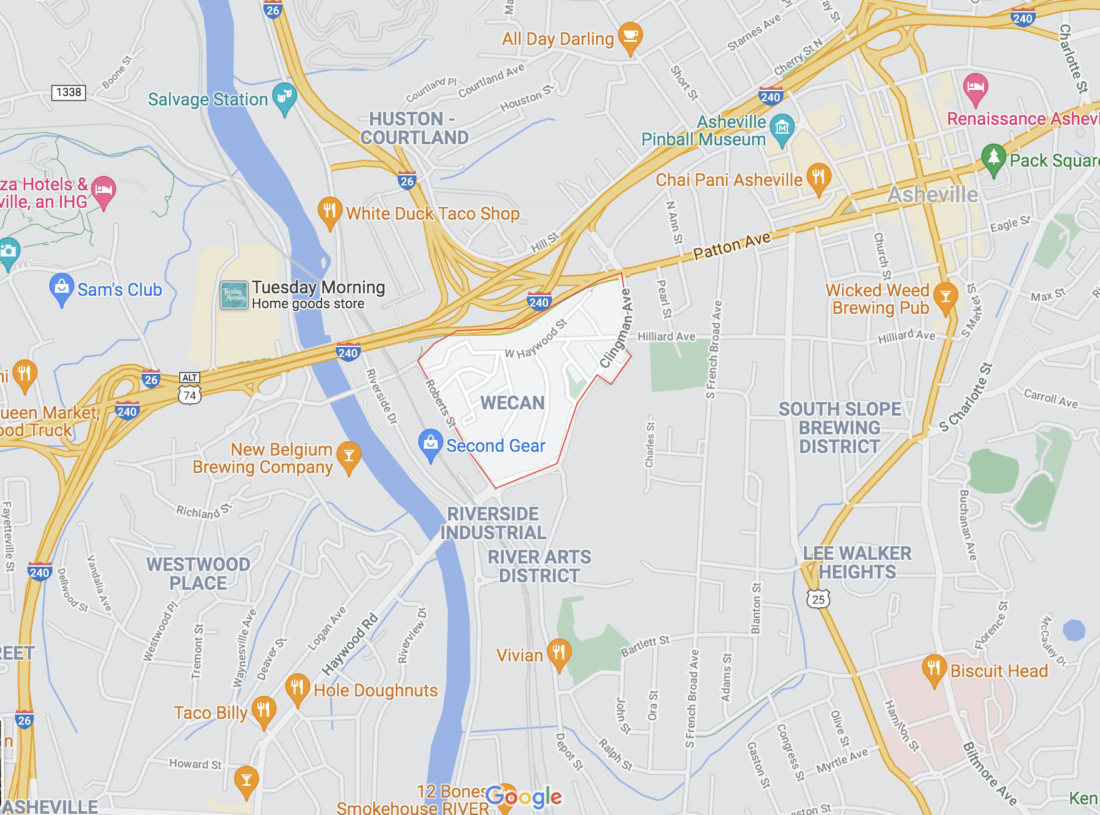When one door closes, another one opens. That’s at least true for Haywood Street Community Development, which after dropping previous plans for an affordable housing project due to community pushback is under contract for a new location in the West End/Clingman Avenue Neighborhood.
With only Gwen Wisler in opposition, the members of Asheville City Council approved an amended grant agreement with the nonprofit to cover an additional $225,000 in due diligence costs for the potential site Oct. 26. Together with a previous $71,000 grant, the city’s total investment in the 42-unit residential project now sits at $296,000, to be funded through $25 million in affordable housing bonds approved by voters in November 2016.
The city had previously agreed to sell Haywood Street Community Development property between 157 and 261 Asheland Ave. for a similar project. However, the nonprofit abandoned the proposal after Black activists objected to the sale of the land, which the city had acquired as part of the East Riverside urban renewal program, to a white-led organization.
The new proposed location for the affordable development is between 343 and 357 West Haywood St. All of the apartments would be reserved for people earning less than 80% of the area median income ($60,100 for a family of four); up to half of those units could be available for those earning 30% AMI or less.
During the Oct. 26 meeting, Wisler said that while she agreed with the need for affordable housing, Haywood Street Community Development had not yet secured funding for the roughly $8.3 million project. She argued that the city would lose its investment if the sale fell through or the nonprofit couldn’t fund construction.
“What ‘due diligence’ did the city do to say that this project is going to get funded?” Wisler asked prior to the vote. “Do we have any other circumstances where we’ve committed funds — we clearly are already in for $71,000 — but this level of funds for any other project at this early stage in the development?”
Nikki Reid, the city’s interim director of community and economic development, said that Haywood Street had confirmed $2 million in funding from the Dogwood Health Trust and had submitted a proposal through Buncombe County’s American Rescue Plan Act grant application process for another $2 million. The nonprofit also plans to ask the city for $2 million through its own ARPA funding process and will seek a bank loan for the remaining expenses.
“It’s a valid point that these are risks. We realize that, as we look at development projects, there are some that do come to fruition and some that don’t,” Reid said. “But this is certainly the landscape that we find ourselves with funding affordable housing.”
Vice Mayor Sheneika Smith said she shared Wisler’s concerns but believed that other sources of funding might follow after initial investments from the city.
“I’ve been on board since day one,” Smith said. “I know it’s a deep risk and I know we don’t want to be the first people to put ourselves out there, but this is something I feel very compelled
deeply to do.”
The Grind enters lease agreement; Council appoints P&Z member
Council members unanimously approved a lease agreement with The Grind, a Black-owned coffee shop, for a city-owned property and structure at 8 River Arts Place. The Grind will be one of 58 Black-owned businesses to collaborate in an economic development project known as Black Wall Street at the location.
Before the vote, Smith asked that the terms of the lease agreement be amended to charge the new tenant $1 per year, instead of the $1,500 per month or $18,000 per year noted in the contract. She noted that the city has a similar arrangement with Mike DeWine, governor of Ohio and owner of the Asheville Tourists baseball team, for the leasing of McCormick Field.
City Attorney Brad Branham said that the required legal notice for a lease amendment is 30 days. Council members thus agreed to approve the original lease agreement with the intention to amend the lease at a future meeting and reimburse the tenant for any difference in rent if the rate were lowered.
A majority of Council members also voted to appoint Kelsey Simmons, who works as a program director at YMI Cultural Center and a real estate agent, to the city’s Planning and Zoning Commission. Smith and Sage Turner instead voted for Nicholas Dugan, while Kim Roney picked Sara Wilcox.




What makes the Governor of Ohio qualify for free rent from the City for McCormick Field? Isn’t that a little TOO business friendly?